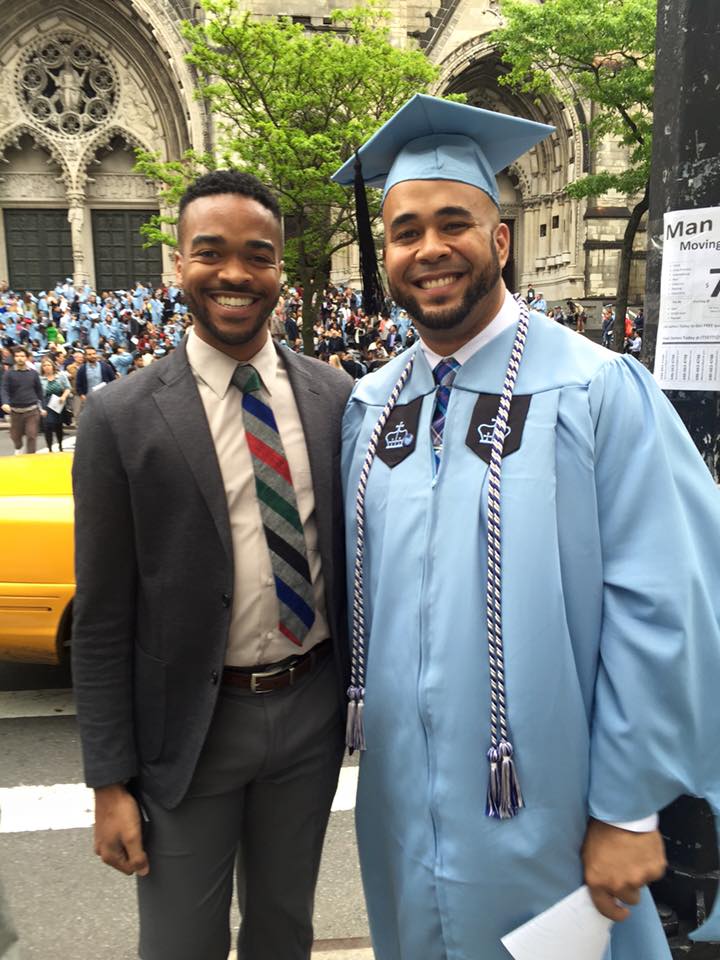My mom’s youngest brother is only 6 years older than me, so we naturally developed more of a brother-like relationship growing up so close in age. Since I see my uncle, whom I shall refer to from this point forward as CQ, as an older brother figure, I’ve always paid close attention to his academic and professional journeys. As you can imagine, I enjoyed every moment of being in New York last spring to celebrate his graduation from Columbia University, a world-renowned university located in upper Manhattan and member of the Ivy League.
CQ completed a Masters in Social-Organizational Psychology at Columbia’s Teachers College, and started working for one of the top management consultant firms in New York City this fall. As part of his transition from college back to work, he embarked on 4 country tour last summer, which included running the Tusk Safaricom Marathon 2016 in Kenya.
For Thought #15, I’m going to share insights from an Ivy League graduate and all together impressive individual about what it takes to get into an Ivy League university, why he chose Columbia, and why it was important for him to travel and participate in a marathon after graduation.
@founderctc: What does it take to get into an Ivy League university?
CQ cautions against applying to a school for its name alone. He explains that when making a decision about a school, “it’s more than the name, it’s the impact.” It’s important to carefully consider the impact a perspective school will have on your personal development, professional development and career trajectory because that will enable you to make a compelling argument for “Fit”, which is a top priority for many competitive colleges and academic programs (see Thought #13: Finding a College that Fits). In addition to conveying your personal brand and mission, you want to demonstrate to a prospective school that you understand their brand and mission. You can then explain how both missions complement each other.
Moreover, CQ explains that Ivy League students are good at “experiencing the experience.” According to CQ, a hallmark of the Ivy League student is their capacity for critical reflection. Take advantage of the opportunity to analyze an experience that has significantly impacted your personal and professional development via the application essay.
CQ wraps up the first question by stating, “passion is always exciting,” emphasizing the importance of convincing a school that you are passionate about what they have to offer, and that it is equally important to be passionate about where you’re going and what you’re studying.
@founderctc: Why Columbia University?
Perhaps unsurprisingly, CQ reveals that his primary draw to Columbia wasn’t the school’s name recognition or Ivy status. Academics were his primary draw to Columbia. The Social-Organizational Psychology program is, “the only one of its kind,” making CQ’s decision to attend Columbia one heck-of-a-lot easier. Additionally, it’s important for applicants to competitive colleges and universities to understand all a school has to offer, both socially and academically, in order to make a compelling case for how that particular school or program aligns with your interests and aspirations.
CQ also notes location as a major selling point for Columbia. Located in New York City, the job market and the urban lifestyle were major appeals. While all great schools may not be located in a major city, it’s important that you to feel both comfortable, and hopefully even a little excited about the school and periphery communities you will be spending the next couple years of your life in.
@founderctc: Why travel and run a marathon as your transition from Columbia back to work?
“Grad school was part of a larger step,” CQ explains. This step included garnering formal recognition for his accomplishments, solidifying his brand, and earning a new title. However, he warns, “you cannot neglect your mind, body, and spirit.” It’s often the case that the body and spirit are the most vulnerable to neglect when pit against school and work, so it makes total sense that CQ would use the summer to escape on an adventure and reconnect with himself.
“[Re]-calibration” was paramount the summer between college and reentering the work force according to CQ. Emphasizing the spiritual aspects of running, he explains “It’s kind of like meditation.” Travelling and training for a marathon were his ways to reflect, re-imagine goals, and push his body to its physical limits. Conceding the more practical-side of running, CQ admits, “You can run anywhere,” arguing that running is a great way, “to learn new places and meet new people.”
If you enjoyed Thought #15, be sure to like and leave a comment – I’d love to hear from you! Also, please subscribe to Thoughts on my website to get notified of new posts.


Well spoken and intellectually insightful ❤️ Easy Read
Keep it up
Thank you! Be sure to let me know what you’re interested in, so I can integrate in Thoughts.